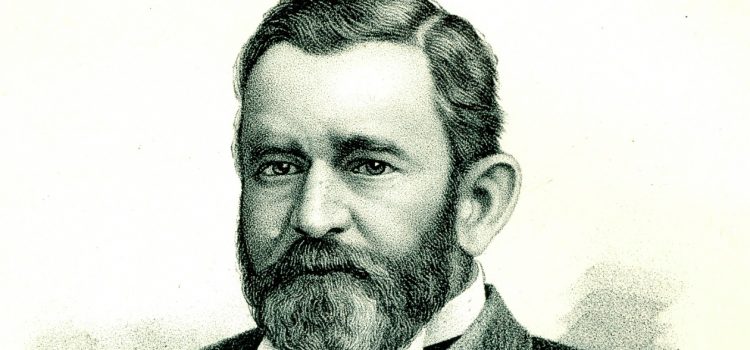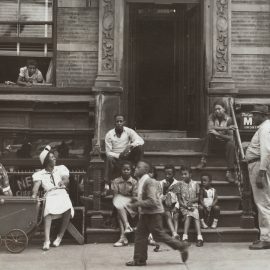

This article is an excerpt from the Shortform book guide to "Grant" by Ron Chernow. Shortform has the world's best summaries and analyses of books you should be reading.
Like this article? Sign up for a free trial here.
What was Ulysses S. Grant’s stance on slavery? Was he in full support of abolitionism?
Ulysses S. Grant was the General of the Union Armies during the Civil War, fighting to preserve the United States as a constitutional union. Despite having a personal opposition to slavery, Grant wasn’t fully committed to the idea of abolitionism.
Read more about Ulysses S. Grant on slavery below.
Grant’s Early Resistance to Abolitionism
Grant’s initial commitment to Unionism was not accompanied by a full-fledged commitment to abolitionism—the view that the federal government ought to ban slavery nationwide. According to Grant by Ron Chernow, the stance of Ulysses S. Grant on slavery was that he was morally opposed to the institution of slavery but considered it imprudent to interfere with slavery in slave states.
To demonstrate Grant’s personal opposition to slavery, Chernow relates the only instance in which Grant himself owned a slave—his father-in-law gifted him a slave, William Jones, in the summer of 1859, when Grant was struggling to stay afloat financially. Although Grant could have simply sold Jones and profited handsomely, he instead filed with the St. Louis Circuit Court to formally liberate Jones, making him a free man. Moreover, Chernow points out that rather than owning slaves himself, Grant even hired freed ex-slaves and paid them a reasonable wage to work on his farm.
(Shortform note: Before the Civil War, slaves like William Jones who had documents of manumission—proof that their former masters had freed them—nonetheless ran the risk of returning to slavery. As experts explain, slave catchers often kidnapped these ex-slaves, destroyed their manumission papers, and sold them back into slavery. For this reason, many former slaves would file copies of their manumission documents with county offices to have recourse in case their original copies were destroyed.)
Nonetheless, Chernow acknowledges that, according to testimony from those close to Grant in 1861, Grant still believed that the federal government shouldn’t interfere with slavery in slave states, reasoning that the risk of bloody backlash was too high to justify interference.
(Shortform note: In contrast to Grant’s preferred policy of noninterference, other Union politicians recognized that the institution of slavery would eventually lead to confrontation between the North and the South. William H. Seward, who would later become US Secretary of State, expressed this sentiment in his famous 1858 speech, “Irrepressible Conflict,” in which he argued that the North would eventually have to face the issue of slavery with the South, causing slavery to either be abolished or embraced nationwide.)
Grant’s Consistent Concern for Freedmen
In addition to Grant’s strategic genius, Chernow maintains that Grant also exemplified compassion in his treatment of ex-slaves throughout the Civil War. Specifically, Chernow argues that Grant consistently advocated for the fair treatment of ex-slaves, as shown by his development of “contraband camps” to care for former slaves and his commitment to letting them join the Union army.
First, Chernow points out that in November of 1862, following Congressional orders for Union armies to safeguard former slaves, Grant spearheaded the effort to establish “contraband camps”—encampments in which former slaves were paid for their labor (like harvesting crops and building cabins). Moreover, Grant supplied these freedmen with shelter, food, and clothing to effectively establish their own communities. As Chernow relates, Grant’s initiative even earned him praise from acclaimed Black abolitionist Frederick Douglass.
(Shortform note: Although these contraband camps protected freedmen from being captured and resold into slavery, they nonetheless failed to provide a true safe haven. According to experts, these camps suffered from disease, harsh working conditions, and racism on the part of Union soldiers. Even John Eaton, the Army chaplain Grant appointed to oversee the camps, later lamented that many Union soldiers outright refused to aid freedmen in these camps.)
Additionally, Chernow relates that in April of 1863, Grant enthusiastically enlisted former slaves into the army as paid soldiers and urged his commanders to do the same, creating the first Black regiments in the Union army. Chernow argues that, in light of the entrenched racism present in the Union army, Grant’s insistence on allowing liberated slaves to join the military was momentous: By encouraging prejudiced Union troops to work alongside these ex-slaves, Grant began to uproot decades of ingrained racism among Northern soldiers.
(Shortform note: While Grant deserves credit for enlisting freedmen in the army, these freedmen nonetheless suffered from discriminatory practices. For example, Black soldiers were only paid $10 per month (from which $3 was deducted for clothing), while white soldiers earned $13 per month for the same services. Not until June 1864 did Congress mandate equal pay for Black and white soldiers.)
Chernow contends that both of these actions flowed from Grant’s increasingly firm support for abolitionism. Chernow notes that, in Grant’s 1863 letter to Illinois Representative Elihu Washburne, he expressed an uncompromising conviction that reconciliation with the South could only occur after eradicating slavery, even going so far as to deem the war divine retribution for slavery.
(Shortform note: According to historians, Grant’s evolving view of the war as divine retribution for slavery reflected a trend among Union Protestants. They argue that, as the Union suffered bloody defeats in the Eastern Theater at the beginning of the Civil War, Protestant ministers sought a theological justification for these defeats. Many ministers thus concluded that God was unsatisfied with the North’s initial rationale for entering the Civil War—namely, to save the Union, not to abolish slavery—and believed God instead wanted the Union to fight to end slavery.)

———End of Preview———
Like what you just read? Read the rest of the world's best book summary and analysis of Ron Chernow's "Grant" at Shortform.
Here's what you'll find in our full Grant summary:
- A biography of Ulysses S. Grant that paints him in a new light
- Grant's role in the Civil War and as president of the United States
- How Grant fought valiantly against alcohol addiction






